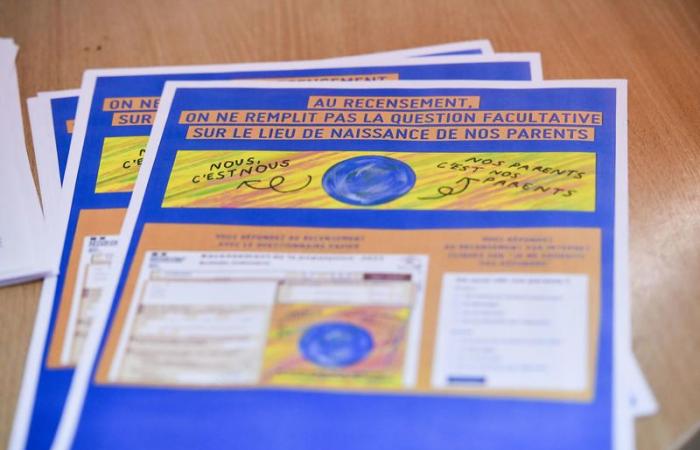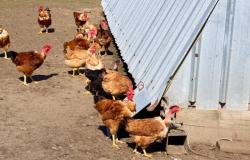9 million. This is the number of French people who will be drawn at random to respond to the annual census conducted by the National Institute of Statistics and Economic Studies (Insee) and the municipalities. Established since 1981, the census aims to know the distribution of the population and its characteristics, in order to refine the public policies deployed in the territories.
For this campaign, three new questions are emerging: frequency of teleworking, existence of a disability and place of birth of the mother and father. The introduction of this last item particularly worries those involved in the fight against discrimination.
“To fight against racism, do not make the question of “race” invisible”
« Which policies can only be decided by calculating the number of people whose parents were born abroad? » ask the Human Rights League (LDH), the Movement against racism and for friendship between peoples (Mrap) and three unions (CGT, FSU and Solidaires), questioning the real impact of this question on future public policies.
Questioned on Franceinfo, Muriel Barlet, head of the demography department at INSEE, believes for her part that this question allows “ to highlight types of segregation or inequality of situation » linked to the origin of the parents.
A position also supported by the rights defender, Claire Hédon, and demographers, including Patrick Simon, from the National Institute of Demographic Studies (INED) and a specialist in discrimination. The latter considers in particular that for “fighting racism, we must not make the issue of “race” invisible”.
If INSEE has agreed to make it optional, the five unions and associations nevertheless call not to answer the question, recalling that “ no public policy justifies the immigrant origin of parents being collected in the individual report card ».
-« We know that children of migrants represent only a tiny part of the population. The descendants of immigrants are often from the third or fourth generations. They are therefore, therefore, French. This question is of no use unless you want to create some form of record. Which is extremely worrying », denounces François Sauterey, co-president of Mrap.
A question that “risks fueling fears even more”
« We are not against investigations into discrimination nor against INSEE. On the contrary, we have all noted the increase in racist acts. The far right is now very widely established. However, this question risks fueling fears even more », Adds Murielle Guilbert, Solidaires co-delegate. From there to seeing the Bolloré channels, CNews in the lead, proclaiming the identity fantasy of the “Great Replacement”, there is only one (small) step.
Invited to react on BFMTV, Bruno Retailleau, current Minister of the Interior, spoke of the imperative to report on “sociological reality” of France on the grounds that “ on migratory movements, we need to know [la situation]. “. He also indicated that he was in favor of “ ethnic statistics » on the condition that they do not lead to “ la discrimination positive “. A declaration which should reassure the National Rally…
Faced with the extreme right, don’t give up!
It is step by step, argument against argument that we must fight the extreme right. And this is what we do every day in Humanity.
Faced with incessant attacks from racists and hate mongers: support us! Together, let’s make another voice heard in this increasingly nauseating public debate.
I want to know more.






